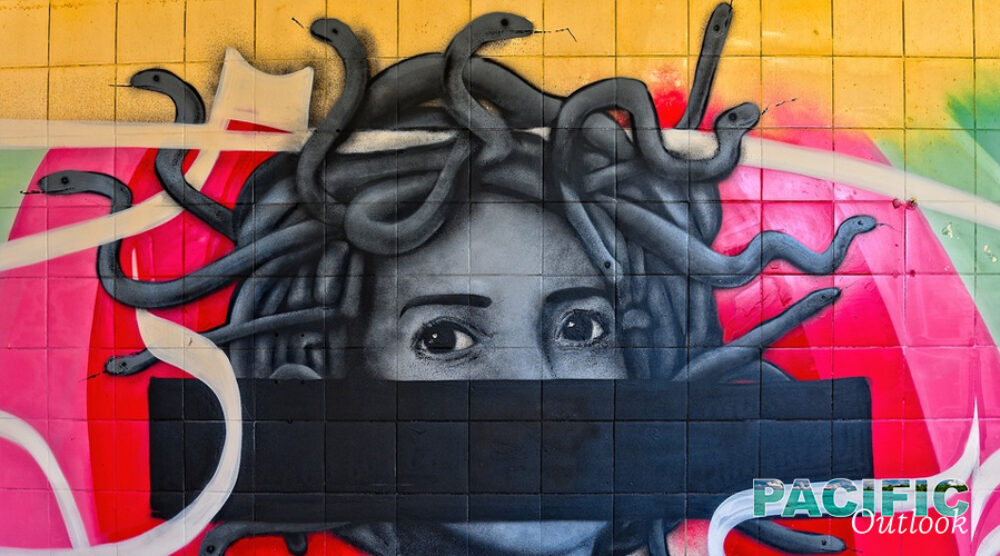I was exceptionally fortunate to be invited to attend the recent Melanesia Media Freedom Forum at the Griffith University’s South Bank campus in Brisbane. It brought together an outstanding group of practising journalists from Fiji, Vanuatu, Solomon Islands, Papua New Guinea, the Autonomous Region of Bougainville and West Papua.
Personally I knew quite a few of those who attended thanks to the many years that I spent covering the Melanesian region for the ABC both as the long-time ABC PNG correspondent and, later, travelling throughout the islands reporting for both Radio Australia and for what is now the unfortunately discontinued ABC international television service, Australian Network.
I am well aware of the challenges these Melanesian colleagues of mine face. I was deported from both Papua New Guinea and Fiji. As an aside, I can tell you PNG does it a bit better. The government there not only allowed me back but has honoured me with two awards, an MBE and, more recently, making me a Companion of the Order of the Star of Melanesia.
Fred Wesley, the Editor-In-Chief of the Fiji Times, was one of those invited and told us of the sedition charges brought against him by Commodore Bainimarama’s Government. Thankfully, the courts in Fiji threw the case out. Wesley also said Fiji’s onerous Media Act provided for the imposition of heavy fines and possible prison sentences on individual members of staff as well as the company.
Another really fine Fijian journalist attending the Forum, Samisoni Pareti, who is a close friend, also had a run in with the authorities there. Pareti is the Editor of Islands Business and after publishing a story suggesting that a magistrate who ruled against the government would not have his contract renewed, he and two others were called in for police questioning. The police took their mobile phones and computers for examination.
Writing about these two cases, Nic MacClellan, a journalist with many years’ experience in the Pacific, wrote that: “For journalists working in small island states, treading on the toes of someone powerful in government or business is an occupational hazard for which, sooner or later, they’ll make you pay. In recent years, however, there is a noticeable trend to use serious legal charges to hobble journalists and media organisations in an attempt to promote a climate of self-censorship.”
Victor Mambor, a West Papuan journalist, spoke of how Melanesian journalists in West Papua faced racism and threats and intimidation. He told the Forum of how he had had a gun held to his head in front of his wife by Indonesian security forces. And of how the Indonesian Government closed down the Internet in West Papua because it did not like what was being put online.
As soon as the Forum was over, those attending were presented with an immediate example of how tough life can be for a journalist in Melanesia. Dan McGarry, a Canadian citizen who has lived in Vanuatu for many years and has a ni-Vanuatu family there, was prevented from boarding his flight home to Port Vila following a directive from the Vanuatu government to the airline. McGarry had already been forced to step aside from his position as Media Director of the Pacific nation’s only daily newspaper, the Vanuatu Daily Post. The government claimed that the job should be done by a citizen of Vanuatu. However, his own application for citizenship appears to be a never-ending saga. The courts in Vanuatu ruled that the government had no basis to refuse his re-entry to the country. McGarry believes that amongst the reasons he has been targeted is because of the Daily Post’s reports about the growing influence of China in Vanuatu.
Another participant at the forum, Papua New Guinea’s pre-eminent online journalist, Scott Waide, who also works for EMTV, agreed with McGarry. He told Radio Australia’s Pacific Beat program that “Pacific governments are seeing what can be done to the media … and taking notes from the Chinese government basically. I’m not saying China’s directly telling them to do it but people watch, people learn”. Waide said media freedom was on a “dangerous downward trend” in the region.
“Many of those who’ve come (to this Melanesian Media Freedom Forum) have been persecuted by their governments, arrested or questioned or intimidated with lawsuits against them or sacked and threatened with sackings.”
One complaint raised during the Forum regarded the negative role of some well-paid advisers in the region. As the final communique put it: “Obstruction from development partners and communications consultants, including from Australia, are in some instances contributing to problems of lack of access to decision-makers.” One of the participants from Solomon Islands gave an example of this sort of behaviour during the Australian led Regional Assistance Mission to Solomon Islands, RAMSI.
In my own address to the Forum I said it was sad that things appeared to be getting worse not better for media freedom in the Pacific. I said I had nothing but the greatest admiration for my friends and colleagues who every day were playing a major role in upholding democracy in Melanesia and doing their best to let the people of their countries know what was really going on.
And I urged them to keep in contact with each other and ensure that the media freedom fire in Melanesia kept burning. The Melanesia Media Freedom Forum was a fabulous opportunity to establish the linkages to facilitate that contact. We must build on this into the future.
You can read the ‘Outcome Statement’ released by the Melanesia Media Freedom Forum here.
Sean Dorney, a long-time former Foreign Correspondent with the ABC, is now a Non-Resident Fellow with the Lowy Institute for International Policy.








